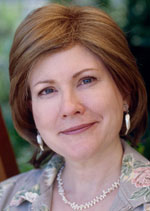Do you know your true weight? Not the “I ate a lot of salt yesterday” weight, or the “I’m in my heavy clothes and shoes” weight. No, do you know how much you weigh and, more important, where you fall on the spectrum that goes from “healthy” to “heavy” or “obese”?
Or are you like many others who fudge (pardon the food reference) their numbers or otherwise try to avoid the topic altogether?
Oh, yes, there are stories.
One doctor told me that one of her patients tried to bribe the nurse (with money) to alter the weight listed in her medical file. Now, there’s a novel way to spend precious health care dollars.
One lupus patient I know waited until she was alone in the examination room, then set the scale to 145. When the doctor entered the room, she would say, “Oh, you don’t have to weigh me. I already did. That’s my weight.” She did this for more than 20 years, until her death. Through that time, she continued to gain weight, but the doctor did not contradict her, either because he was unaware or he understood she had other, more serious symptoms to contend with.
Of course, stories abound of how doctors’ scales are notoriously miscalibrated.
I once went to two doctor appointments back to back and was weighed at each. I did not eat or drink anything in between and wore the same clothing, but the weight differential was five pounds.
When I pointed it out after the second weigh-in, the nurse assured me, “Oh, our scale has to be correct because we have a lot of pregnant women in this office” (an ob-gyn practice). The next time I visited the first doctor, I told him about what the nurse at the other office had said, and he assured me, “Oh, our scale has to be correct because we have it checked regularly.”
My experience called to mind a cartoon I use as part of a presentation I give on humor in health care. The cartoon depicts a woman in a doctor’s examination room. She has her hands firmly wrapped around the doctor’s throat and the caption reads, “And I say your stupid scale is broken!”
Who to believe?
Let’s start with ourselves. Honesty really is the best policy. We do ourselves no favors if we try to ignore the proverbial elephant in the room.
Being honest about our weight helps us take the next step, actually doing something proactive if we are in an unhealthful range. Think “what I did with my stuff when my mother told me to clean out my room when I was a teenager.” Shutting our reality in a closet will do nothing to take control of it in the long run (and pretty soon, you run out of closets and then even more serious problems can arise).
Honesty also is an excellent way to model healthful behavior for others. If we are willing to face our dietary demons and show that we have a dedication to bettering our lives, then others, especially children, can be inspired, encouraged and energized to do the same.
Finally, whether we are honest or not, our doctors are determined to circumvent our evasions. The doctor whose patient tried to bribe the nurse nipped that activity in the bud. My cardiologist has gone even further; his new examination table weighs patients as they lie on it, thus no more presetting the scale’s number.
Yes, they’re onto us. So, let’s use our creative thinking, instead, for the purpose of good. Honestly, we’ll be much better off.
PREVIOUS: Figure it out: Be receptive to God’s will
NEXT: Knowing the horrors of war may be the experience we need




Share this story